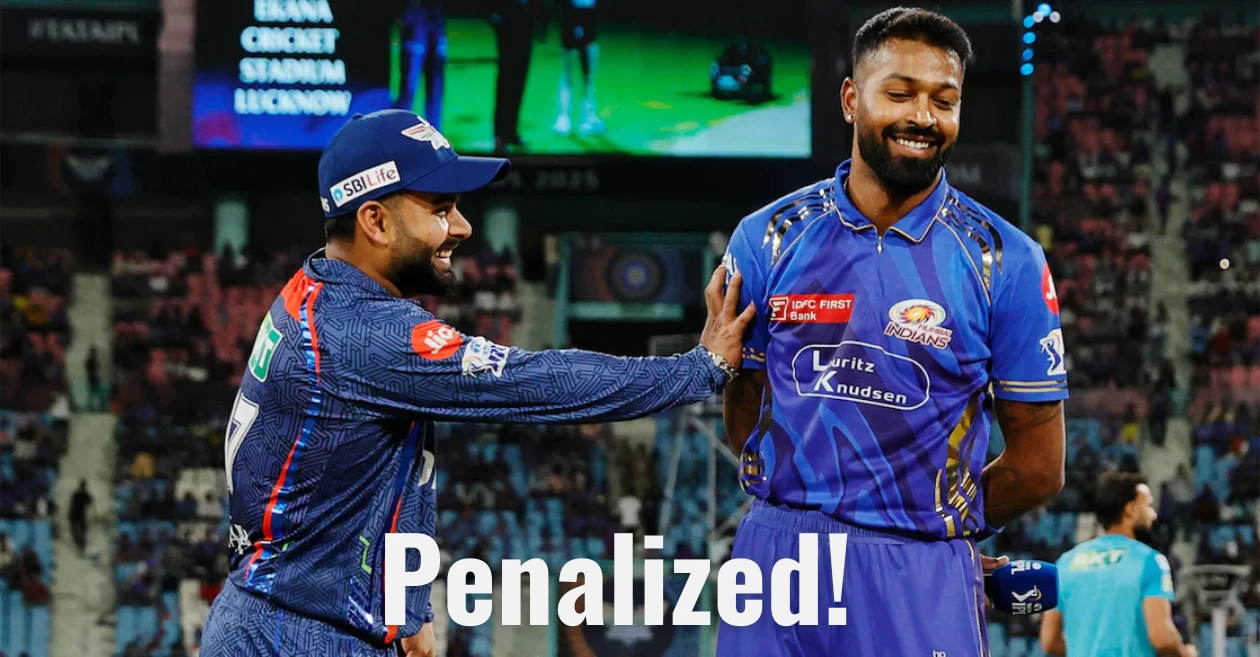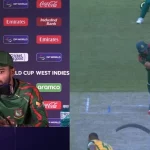The Indian Premier League (IPL) has always been more than just a cricket tournament. It’s a high-octane blend of athleticism, entertainment, and strategy compressed into 20 overs of edge-of-the-seat drama. But in IPL 2025, amidst the towering sixes, flying stumps, and last-over thrillers, a different storyline is unfolding — a season of time trouble.
This year, the governing body of the IPL has taken a no-nonsense stance on slow over-rates, and the repercussions are being felt loud and clear. From marquee captains facing hefty fines to tactical sanctions impacting crunch moments, the battle to beat the clock has become one of the tournament’s defining subplots.
T20 at a Tipping Point: The Rise of Over-Rate Concerns
T20 cricket thrives on momentum — both on the field and off it. With broadcasters, advertisers, and a global audience tuned in, every over needs to be bowled within the stipulated time. Yet, as matches have become increasingly tactical with longer strategic breaks, over-rate violations have crept in like a slow poison.
In previous seasons, the IPL issued warnings and fines intermittently, but IPL 2025 has seen a sharp rise in over-rate penalties, especially targeting captains — the on-field generals responsible for time management. The message is clear: professionalism is non-negotiable.
The Fines Are In: Captains in the Crosshairs
Several big-name skippers have already faced the wrath of the match officials and the IPL Code of Conduct this season. Let’s break down the major infractions and what they’ve meant for the teams involved.
1. Hardik Pandya (Mumbai Indians)
Fine: ₹12 lakh
Match: MI vs Gujarat Titans
The spotlight was already intense on Hardik Pandya, who returned to lead Mumbai Indians after a one-match suspension earlier in the season. The match against his former franchise, Gujarat Titans, should have been a statement of redemption — instead, it turned into a sour affair.
MI not only lost the match, but Hardik was fined ₹12 lakh for a slow over-rate violation, their first of the season. While the monetary penalty stung, the greater impact was symbolic — a sign of mismanaged leadership under pressure. For a team like MI that boasts five titles, such lapses are hard to digest.
2. Rishabh Pant (Lucknow Super Giants)
Fine: ₹24 lakh
Match: LSG vs Mumbai Indians
Rishabh Pant, who has been under the scanner for his captaincy tactics with Lucknow Super Giants, faced a harsher penalty. A second over-rate offence meant a doubled fine — ₹24 lakh for Pant and additional penalties for every playing XI member.
More critically, such breaches have tactical implications. They disrupt momentum, affect field settings, and put captains under pressure in the final overs. For Pant, whose leadership was already being questioned after a string of inconsistent results, the fine only amplified the heat.
3. Shreyas Iyer (Punjab Kings)
Fine: ₹12 lakh
Match: PBKS vs Chennai Super Kings
Shreyas Iyer found himself in the spotlight after a thrilling win over CSK, but the celebrations were dampened by a penalty for being one over short at the end of the innings.
While Punjab Kings bagged the points, they suffered an in-match tactical penalty — being forced to field an extra player inside the 30-yard circle during the death overs. Against a team like CSK, that’s a massive strategic disadvantage. Fortunately for PBKS, the win overshadowed the penalty — but in a tighter contest, this could’ve been costly.
Additional Offenders: A League-Wide Challenge
It’s not just the star names. Several other captains have also been booked for slow over-rates this season:
-
Shubman Gill (Gujarat Titans) – A first-time IPL captain, Gill has struggled with over-rate management, especially with GT’s spin-heavy middle overs.
-
Axar Patel (Delhi Capitals) – Acting skipper in David Warner’s absence, Axar faced penalties that reflect DC’s broader leadership woes.
-
Sanju Samson & Riyan Parag (Rajasthan Royals) – With RR slipping in form, the dual leadership experiment hasn’t helped in avoiding time violations.
-
Rajat Patidar (Royal Challengers Bengaluru) – The surprise captaincy role seems to have overwhelmed Patidar, with RCB suffering from multiple tactical time-outs and slow overs.
Understanding the Over-Rate Rulebook: Why It Matters
The IPL has outlined clear regulations for over-rates:
-
First Offence: ₹12 lakh fine for the captain.
-
Second Offence: ₹24 lakh fine for captain; ₹6 lakh or 25% of match fee (whichever is less) for other players.
-
Third Offence: ₹30 lakh fine and one-match suspension for the captain.
Beyond the financial fines, captains dread the in-match consequences — altered fielding restrictions, loss of momentum, and potentially suspended leadership roles during crucial matches.
In a tournament where every run and every over matters, a one-over delay can tilt the balance — especially when playoff qualifications boil down to net run rates and fine margins.
Leadership Under the Lens: Why Captains Are Struggling
What’s causing this sudden uptick in violations?
1. Strategic Delays
Modern T20 matches involve intense tactical discussions — who bowls the next over, which batter is being lined up, field adjustments. With the arrival of substitutes (Impact Player Rule), matchups are more dynamic than ever.
2. Slower Over Rates During Death Overs
Final overs are often disrupted by wides, no-balls, replays, and DRS calls. This adds to the over-rate woes, especially for teams defending targets.
3. Injuries and Player Changes
Frequent injuries and last-minute squad rotations also slow things down. New bowlers take time to settle into rhythm, and captains are often seen buying extra seconds.
The Broader Impact: Beyond the Captain’s Wallet
1. Tactical Disruption
When teams are penalized with an extra player inside the circle, death overs become vulnerable. Bowlers lose key outfield protection, often resulting in boundary leakage.
2. Dressing Room Discipline
Repeated offences highlight a lack of internal discipline. Coaches and team managers are now making over-rate briefings a regular part of team huddles.
3. Psychological Pressure
Captains now have to juggle field placements, bowling plans, and the ticking clock. In close contests, time pressure can affect decision-making.
4. Leadership Continuity
With a potential match ban looming after three offences, teams cannot afford to lose their captains during the playoff push. It’s a risk that could derail campaigns.
Franchise Responses: Adapting to the Clock
Some teams have taken proactive steps to address the over-rate crisis:
-
Use of Digital Time Trackers: Teams like Chennai and Kolkata are reportedly using wristwatch-like trackers or dugout alerts to keep bowlers on schedule.
-
Dedicated Over-Rate Analyst: A few franchises have appointed support staff solely to monitor over-rate metrics and alert captains.
-
Faster Bowling Changes: MI and RR have tried pre-decided bowling orders to reduce mid-over delays.
The results are mixed, but the intent is clear: adapt or pay the price.
What This Means for the Playoffs
As the race to the top four intensifies, over-rate management could prove as decisive as power-hitting or death bowling. Teams that maintain discipline will hold an edge — not just in avoiding fines, but in maintaining tactical freedom during crunch overs.
Expect IPL officials to tighten enforcement further as playoffs near, possibly issuing real-time penalties or even pausing the game clock to ensure accountability.
IPL’s Long-Term Vision: A Faster, Sharper Product
The IPL’s crackdown isn’t just about keeping matches short. It’s about preserving the viewing experience — ensuring fans don’t tune out during long delays and that broadcasters don’t face ad-schedule chaos.
More importantly, it’s about setting a precedent. With cricket becoming more commercial and T20 leagues expanding globally, timeliness is part of professionalism. And the IPL, being the benchmark league, must lead by example.
Time is Ticking, and the Clock is Watching
In IPL 2025, the battle isn’t just between bat and ball — it’s also between captains and the clock. As some of the league’s biggest names have discovered, over-rate penalties are more than monetary slaps; they are tactical grenades that can blow up playoff hopes.
For the captains, the message is clear: Lead with purpose, but also with pace. Because in a league where milliseconds matter, managing time might just be the X-factor that decides who lifts the trophy.
Please check for information on the best betting sites in India – https://selectory.org/best-betting-sites/















